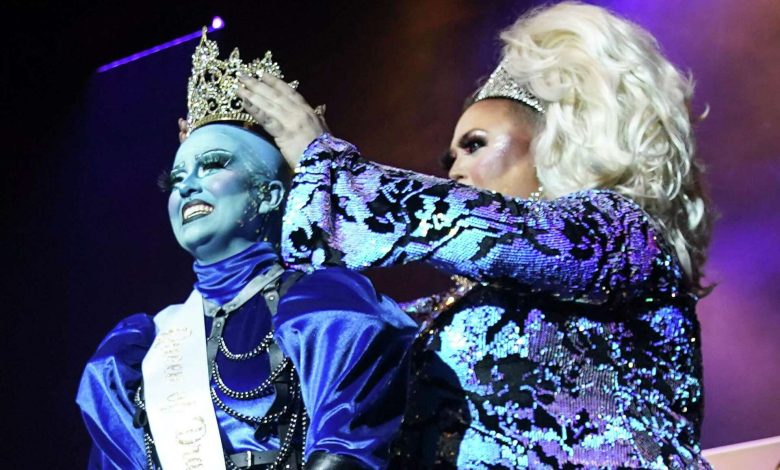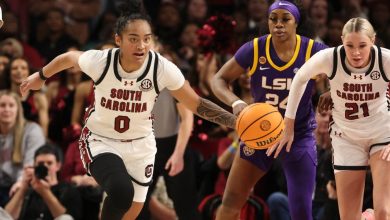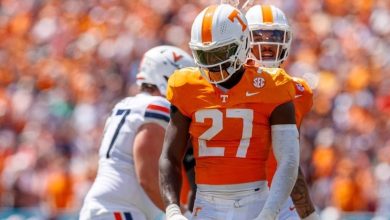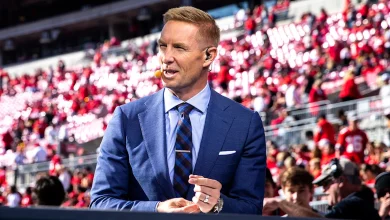The ‘Draggieland’ event is permitted on campus this week after a judge overturns the Texas A&M system’s ban on drag shows.

In a significant legal development for both Texas A&M University and the broader debate surrounding LGBTQ+ rights and freedom of expression on college campuses, a judge recently ruled to overturn the Texas A&M System’s ban on drag shows, thereby allowing the much-anticipated “Draggieland” event to take place this week. The ruling comes after months of contention between the university system, student groups, and various advocacy organizations, making it a pivotal moment in the ongoing conversation about campus policies, student rights, and the intersection of law, culture, and identity.
For many, the “Draggieland” event represents more than just a performance — it symbolizes a fight for inclusivity, diversity, and freedom of expression at an institution with a rich tradition and deep-rooted values. As Texas A&M University (TAMU) is one of the most prominent public universities in the state, the legal victory and subsequent ruling could have implications not just for the university’s student body but for similar institutions across the nation.
In this article, we’ll break down the timeline leading up to the legal battle, the implications of the judge’s ruling, and what this event means for Texas A&M, its students, and the broader conversation on LGBTQ+ rights and freedom of speech in academia.
The Texas A&M Drag Show Controversy: Timeline and Background
The controversy surrounding drag performances at Texas A&M began earlier this year when the university system enacted a ban on certain campus events, including drag shows. The official justification for the ban was rooted in a broader push from conservative lawmakers and political figures who sought to restrict what they considered to be “inappropriate” or “political” activities on public university campuses. At the core of this controversy was the question of whether drag performances, as a form of self-expression, fell within the scope of what should be allowed at an academic institution.
For many members of the LGBTQ+ community and their allies, the drag show ban was seen as a direct attack on their right to express their identity and culture in a public space. Drag performances have long been an important aspect of LGBTQ+ culture, providing a safe and celebratory space for individuals to express themselves, challenge gender norms, and connect with others. As one of the largest public universities in Texas, Texas A&M’s actions were seen as sending a message that such expressions of identity were unwelcome on campus.
The event that sparked this legal battle was the “Draggieland” event — a planned drag show that was scheduled to take place in late 2024. Organizers, including student groups such as Aggie Allies and other LGBTQ+ organizations, pushed back against the university’s prohibition of the event, arguing that it infringed upon their First Amendment rights to freedom of speech and assembly.
In response to the ban, a coalition of students, faculty, and LGBTQ+ advocacy groups filed a lawsuit against the Texas A&M System, arguing that the ban violated constitutional rights, specifically the right to free expression, which is protected by the First Amendment. They contended that drag shows, like any other form of artistic expression, are protected speech and that denying students the opportunity to host such an event was discriminatory.
The Legal Battle: Key Arguments and Developments
The legal challenge was filed in federal court, where plaintiffs argued that the Texas A&M System had overstepped its authority by restricting student-led events based on content. Their legal team argued that the ban amounted to censorship and violated both the spirit and letter of the Constitution’s First Amendment, which protects free speech and free assembly.
The plaintiffs, including several students and faculty members, contended that the ban was arbitrary, discriminatory, and violated their rights to express themselves freely, especially in the context of an academic institution that traditionally promotes diversity, free inquiry, and open discourse. The argument was framed around the idea that universities, as centers of learning and free thought, should encourage a wide range of voices and expressions, including those that may challenge the status quo.
On the other hand, the Texas A&M System defended its decision by arguing that it was within its rights as a public institution to regulate campus events to ensure they align with its educational mission and values. The system’s lawyers framed the drag show ban as part of a broader effort to maintain a campus environment that was in keeping with the traditional values of Texas A&M — a university with a long-standing reputation for its military traditions, conservative ethos, and commitment to “moral values.” They contended that the event could be perceived as offensive to some students and alumni, arguing that it was their responsibility to uphold certain standards of conduct.
Despite these arguments, the court sided with the plaintiffs. In a landmark decision, the judge ruled that the Texas A&M System’s drag show ban violated the constitutional rights of students and faculty members, declaring that drag performances were a protected form of expression. The judge’s ruling hinged on the principle that universities must not censor artistic and cultural expression that is otherwise protected by the First Amendment, and that the university’s decision to ban the drag show appeared to be a form of content-based discrimination.
The Judge’s Ruling: A Legal Victory for Freedom of Expression
The court’s decision to overturn the ban was hailed as a major victory for freedom of speech and LGBTQ+ rights on college campuses. In his ruling, the judge emphasized the importance of universities as spaces for diverse forms of expression, stating that academic institutions “must serve as havens for free expression, where all students, regardless of their background or identity, have the opportunity to explore and celebrate who they are.”
The judge specifically noted that the Texas A&M System had failed to justify its decision with compelling evidence that drag shows posed a threat to campus safety or were incompatible with the educational mission of the university. He pointed out that if universities were allowed to regulate speech and expression based on subjective ideas of appropriateness, it could set a dangerous precedent that could lead to censorship of a broad range of artistic and cultural events.
Furthermore, the court found that the ban disproportionately targeted LGBTQ+ students, many of whom had planned the “Draggieland” event as a way to create a safe and celebratory space for the community. By blocking the event, the Texas A&M System was effectively denying these students the right to participate in an expression of their culture and identity, which the court ruled was a violation of their constitutional rights.
What’s at Stake: The Implications for Campus Culture and Future Legal Precedents
The judge’s ruling is more than just a legal victory for the plaintiffs; it also has significant implications for the broader conversation about LGBTQ+ rights, freedom of expression, and the role of universities in regulating campus activities.
1. A Win for LGBTQ+ Rights on Campus
At its core, the ruling represents a win for LGBTQ+ students and activists, especially those at Texas A&M University. For many in the LGBTQ+ community, drag shows are not just performances — they are a form of cultural expression, a way to reclaim power, and a source of community-building. By overturning the ban, the court recognized the importance of such events in creating inclusive spaces for marginalized communities on campus. It sends a strong message that colleges and universities should support and protect the rights of all students to express themselves freely, without fear of censorship or discrimination.
This ruling could have ripple effects across the nation, particularly at other public universities that have faced pressure from conservative groups to limit or ban certain forms of expression. It sets a legal precedent that may influence future cases involving similar issues, including drag performances, pride events, and other LGBTQ+ cultural celebrations.
2. The Role of Universities in Supporting Free Speech
The ruling reinforces the idea that universities must be environments that promote free inquiry and open discourse. Academic institutions, especially public ones like Texas A&M, are bound by the Constitution to foster an atmosphere where all forms of expression, even controversial ones, are protected. This case highlights the tension between the desire to maintain campus norms and values and the need to protect individual rights, including the right to free speech.
Moving forward, universities may have to be more cautious in their efforts to regulate student events, particularly when it comes to content-based restrictions. While campuses can impose reasonable time, place, and manner restrictions on events to ensure safety and order, they cannot block events based on their content alone, particularly when such events are protected forms of speech.
3. Political and Social Divisions
The case also underscores the deepening political and social divisions around issues related to LGBTQ+ rights and freedom of expression. For many conservative groups, the issue of drag performances is emblematic of larger debates about societal values and gender norms. The case at Texas A&M was not just about drag shows but about the broader cultural battle over what should and should not be allowed in public spaces, especially in educational settings.
At the same time, LGBTQ+ advocacy groups and allies view these events as an essential part of their fight for equality and recognition. The legal victory in this case is part of a larger movement to protect the rights of LGBTQ+ individuals and to ensure that their culture and identities are celebrated rather than suppressed.
What’s Next: The “Draggieland” Event and Campus Response
With the legal victory now in place, the “Draggieland” event is set to go forward as planned. Students and faculty at Texas A&M are preparing for a celebration of LGBTQ+ culture, with the event expected to draw a large crowd of supporters, allies, and community members. The show promises to be a colorful and high-energy event, with performances by drag queens and kings, live music, and a festive atmosphere.
However, while the ruling has allowed the event to proceed, it’s likely that the debate surrounding the role of drag shows and LGBTQ+ expression on college campuses will continue. Texas A&M, as well as other universities in Texas and beyond, may face additional challenges to navigate the complex intersection of law, campus
policies, and student rights in the years ahead.
The “Draggieland” event will undoubtedly be a moment of celebration for many, but it will also serve as a reminder of the ongoing struggle for inclusivity and equal treatment in our educational institutions.









